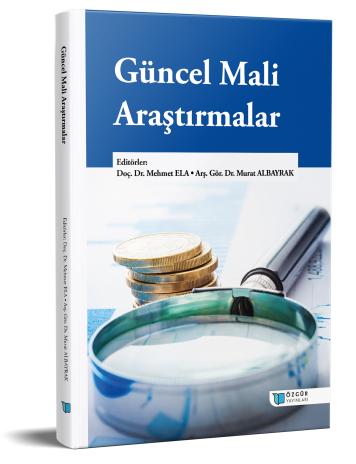
Vergi Usul Kanununda Yer Alan Uzlaşma Müessesesinin Vergi Tahsilatı Üzerindeki Etkilerinin Değerlendirilmesi
Şu kitabın bölümü:
Ela,
M.
&
Albayrak,
M.
(eds.)
2024.
Güncel Mali Araştırmalar.
Özet
Devletler ekonomik, mali ve sosyal alanlardaki görev ve sorumlulukları için ihtiyaç duydukları kamu gelirlerinin büyük çoğunluğunu vergilerden elde etmektedir. Verginin öneminden dolayı vergi idareleri vergi alacağını zamanında ve eksiksiz tahsil edebilmek için dönemin yapısına uygun şekilde düzenlemeler yapmaktadır. Verginin doğumundan tahsiline kadar geçen süreçler, vergi suçları ve cezaları Vergi Usul Kanunu içerisinde düzenlenmektedir. Ancak Vergi Usul Kanunu içerisinde bir taraftan cezaların caydırıcılığını artıracak önlemler alınırken diğer taraftan ise bu caydırıcılığı azaltan uzlaşma, vergi affı, cezalarda indirim, pişmanlık ve ıslah gibi müesseselere yer verilmektedir. Bu uygulamalardan biri olan uzlaşma, vergi idaresi ile mükellef arasında yaşanan vergi uyuşmazlıklarının yargıya taşınmadan idari aşamada çözülmesidir. Zamanında tahsil edilemeyen vergi alacağının uzlaşma sonucunda tahsil edilmesi ve mükellefleri vergiye uyumlu davranmaya zorlamak vergi tahsilatı açısından son derece önemlidir. Ancak uzlaşma hakkında birçok eleştiri de yapılmaktadır. Bu eleştiriler genel olarak verginin kanuniliği ve vergilemede adalet ilkelerine ters düşmesi, cezaların caydırıcılığını azaltması ve zaten gecikmiş vergi alacağının ödeme sürelerinin daha da uzaması konularında yapılmaktadır. Çalışmada uzlaşma müessesesinin uygulanma süreci, olumlu ve olumsuz yönleri ile vergi tahsilatı üzerindeki etkileri değerlendirilecektir.

